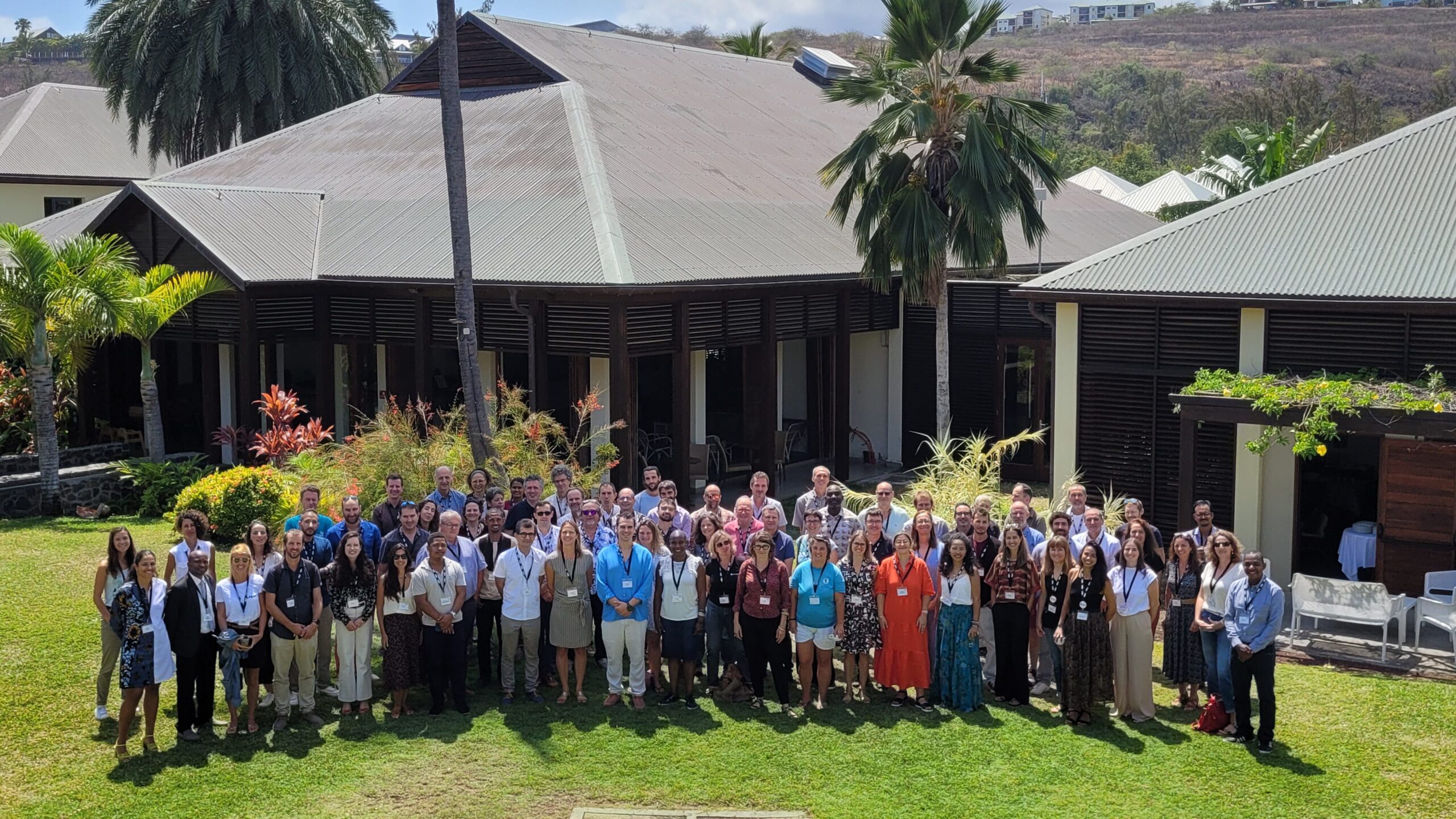
OOSC 2025 : Joachim Claudet warns:
protect the oceans, yes, but effectively
Le mardi 03 juin à 14h40, Joachim Claudet, co-directeur de BRIDGES présentera “Safeguarding our blue Planet: Global action for a sustainable ocean future falls short at effectively conserving biodiversity.” (Sauvegarder notre planète bleue : L’action mondiale pour un avenir durable des océans ne parvient pas à conserver efficacement la biodiversité) (ref. OOS2025-596).
« L’océan est au cœur du bien-être humain. Il régule le climat et fournit de la nourriture, de l’énergie, des minéraux et des ressources génétiques, ainsi que des services culturels et récréatifs. Bien que les objectifs de développement durable des Nations unies ne puissent être atteints sans un océan en bonne santé, l’expansion de l’empreinte humaine le met en péril. Pour contribuer à la protection des océans, les États membres des Nations unies ont convenu de protéger 30 % de leurs eaux d’ici à 2030, conformément au cadre mondial pour la biodiversité de la Convention sur la diversité biologique. Cinq ans plus tard, en présentant et en compilant des évaluations mondiales, régionales et nationales basées à la fois sur le système de classification basé sur la réglementation et sur le guide des AMP, je montre que nous ne parvenons pas à conserver efficacement la biodiversité. La plupart des pays qui mettent en œuvre des outils de conservation spatialisée ne sont pas tenus de rendre des comptes et adoptent des stratégies axées sur la quantité plutôt que sur la qualité. Sur la base de ces évaluations, je présente six recommandations visant à garantir une mise en œuvre plus efficace des aires marines protégées (AMP) et la reconnaissance d’autres mesures efficaces de conservation par zone (OECM) afin de protéger nos océans et de préserver l’environnement et le bien-être humain. »
BRIDGES cherche également à comprendre comment concevoir des outils de gestion spatialisés comme les AMP et les OECM pour plus de résilience, de durabilité et d’équité dans la gestion des pêches et une meilleure conservation de la biodiversité.
Joachim Claudet et Jean-Pierre Gattuso représentent le CNRS au sein du comité d’organisation de l’OOSC.
On Tuesday June 03 at 2:40 pm, BRIDGES co-director Joachim Claudet will present “Safeguarding our blue Planet: Global action for a sustainable ocean future falls short at effectively conserving biodiversity.” Here’s the abstract of his talk:
“The ocean is central to human well-being. It regulates climate and provides food, energy, minerals, and genetic resources as well as cultural and recreational services. Even though the United Nations Sustainable Development Goals cannot be met without a healthy ocean, an expanding human footprint is placing it at risk. To help protect the ocean, Member States of the United Nations agreed to protect 30% of their waters by 2030 following the Convention on Biological Diversity Global Biodiversity Framework. Here, five years to completion, showcasing and compiling global, regional and national assessments based on both the Regulation-Based Classification System and the MPA Guide, I show that we fall short at effectively conserving biodiversity. Most countries implementing area-based conservation tools are not hold accountable and strategize for quantity rather than quality. Building on theses assessments, I present six recommendations to ensure a more effective implementation of marine protected areas (MPAs) and recognition of other effective area-based conservation measures (OECMs) to ensure they protect our ocean and safeguard environmental and human well-being.“
BRIDGES also seeks to understand how to best design area-based management tools such as MPAs and OECMs for greater resilience, sustainability and equity in fisheries management and better biodiversity conservation.
Joachim Claudet and Jean-Pierre Gattuso represent the CNRS on the OOSC organizing committee.
Biosketch

Joachim Claudet is a CNRS research professor working at the CRIOBE-PSL laboratory and also an ocean advisor for the CNRS. He specialises in research into the sustainability of coastal and marine social-ecological systems and uses case studies as input for the management of these systems or meta-analyses as input for public policy-making. The aims of his research are to help solve sustainability issues, identify solutions that are beneficial for nature and people alike, and develop indicators and tools to support the decision-making process. He is the main author
of two IPBES regional evaluation studies and also the upcoming IPBES assessment on transformative change, is a member of the Conseil National de la Protection de la Nature and the Conseil National de la Mer et des Littoraux. Joachim Claudet chairs the scientific councils of the Ocean Climate Platform and MedPAN, the network of managers of marine protected areas in the Mediterranean. He also belongs to many other scientific
committees including the French Foundation for Biodiversity Research and Blue Parks and to international working groups like the High-Level Panel for a Sustainable Ocean Economy and the Blue Climate Initiative. Joachim Claudet also directed a collective book published by Cambridge University Press on the subject of marine protected areas.
More news News


